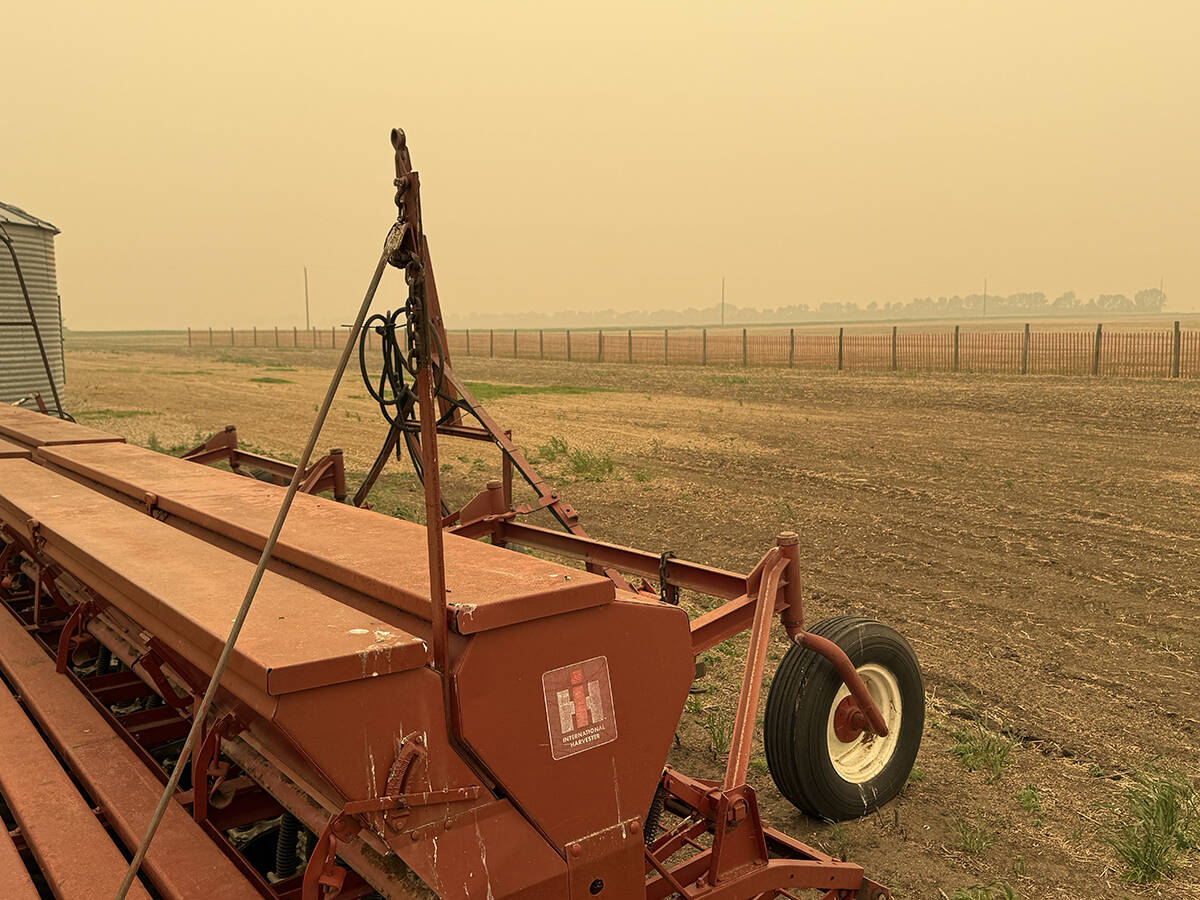The bad news is in the mail.
Property assessment notices are going out in some rural Saskatchewan municipalities and tax notices are soon to follow.
As the province’s new assessment system kicks in, the complaints are mounting in both town and country. The shift of education tax onto agricultural land because of reassessment is drawing particular fire in rural areas.
And the stress is beginning to wear on Don Heidt, reeve of the Rural Municipality of Garden River and chair of the municipality’s assessment appeals board.
Read Also

Wildfires have unexpected upside this year
One farmer feels smoke from nearby wildfires shrouded the July skies and protected his crop from the sun’s burning rays, resulting in more seeds per pod and more pods per plant.
Hearings to be held
He is worried about those who have appealed their assessments in the northern Saskatchewan district. Landowners must submit information for assessment appeals 10 days before their appeal dates. The Garden River court of revision hearing is June 23.
“I’m afraid they can throw me in jail if they want, but I’m not going to disallow more information,” he said. “Eighty percent of the people don’t know what’s going on. They just assume we’re doing it right.
“I just feel like walking away (from his job as reeve). It’s a thankless job now.”
Heidt said 22 appeals have been filed in his district this year, up from the usual five or six.
He said residents in the Prince Albert rural school division will pay about 30 percent more in education tax. The city’s assessment increased 4.8 times, while the rural assessment increased 6.2 times.
Education tax on Heidt’s land will go up about $180 per quarter.
In March, the province took steps to soften the shift of education tax onto agricultural land, announcing the increase would be limited to an average of five percent by applying a factor of .83 to assessments.
Heidt said that didn’t help Garden River property owners and others in the school division because it was applied after the school division’s provincial foundation grant was cut by $1.5 million.
“(Property owners) had to pick up $1.5 million plus the extra needed to start with,” he said.
But Karen Lautsch, manager of school grants for the provincial education department, said assessment and taxation are two separate issues.
The factor applies to taxes, not assessment, she said. Foundation grants distributed to school divisions did rise or fall depending on the new assessment.
“The agriculture factor doesn’t have anything to do with that. It has to do with taxation,” Lautsch said.
Who pays what
She said she hasn’t heard complaints about how the factor is used, but agreed the composition of a school division will determine who pays more.
Ken Engel, executive director of the Saskatchewan Association of Rural Municipalities, said the factor helped but municipalities without commercial or industrial land won’t benefit as much.
“In areas where agriculture is by far the largest assessment in a school division, there’s no place to transfer (education tax) to,” he said, adding that one municipality talked about appealing its entire assessment.















